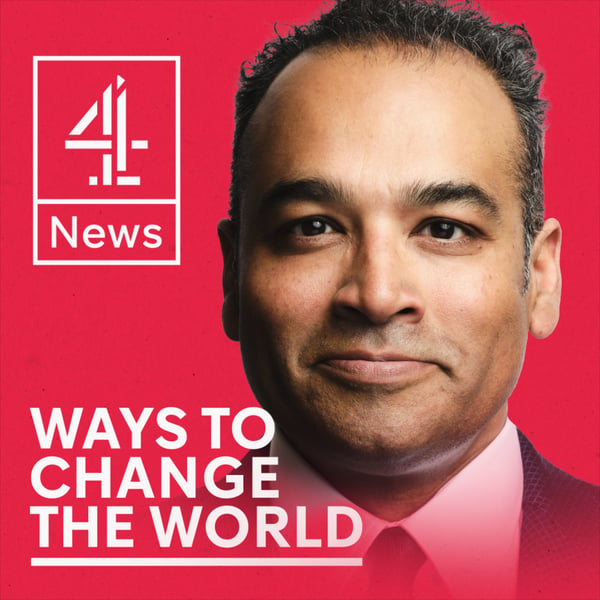Mikaela Loach on fighting the climate crisis through social justice, the problem with net zero, and being a 'soft Black girl'
Ways to Change the World with Krishnan Guru-Murthy
Channel 4 News
4.6 • 1.1K Ratings
🗓️ 20 October 2023
⏱️ 36 minutes
🧾️ Download transcript
Summary
The climate crisis is the biggest single issue affecting us all - but for some, the impact will be, and already is, far greater than for others.
This is the principle of climate justice, that sees the causes and consequences of climate change as inextricably linked with social inequality - and that activist Mikaela Loach has made the focus of her work.
Today on Ways to Change the World, Mikaela Loach tells Krishnan Guru-Murthy why we need to reframe our understanding of the climate crisis in order to tackle its root causes, and why only through “active hope” and collective action can we radically transform our world for the better.
Produced by Silvia Maresca
Transcript
Click on a timestamp to play from that location
| 0:00.0 | Hello and welcome to Ways to Change the World. I'm Krishnan Garimurthy and this is the |
| 0:04.8 | podcast in which we talk to extraordinary people about the big ideas and their lives |
| 0:08.8 | and the events that have helped shape them. My guess this week is a climate campaign |
| 0:13.5 | activist, Nikola Loach, who you may have seen on Channel 4 News and lots of other media outlets |
| 0:19.0 | talking about the climate crisis and about direct action and lots of things that she's been |
| 0:23.2 | involved in through her life. She is according to the cover in her new book. A medical student, |
| 0:31.2 | she's got a degree in global health policy, she's an organizer, a climate justice activist, |
| 0:36.4 | and a soft black girl. She's on a mission to build liberation and inform the masses through her |
| 0:42.0 | focus on the climate crisis and its intersections of anti-racism, feminism, ethical fashion, wealth |
| 0:48.1 | inequality and migrant rights. So there's a lot, there's a lot you put into it, this is basically |
| 0:52.8 | what you think about the world. Yes, that's my Ways to Change the World. I don't want to get hung |
| 0:59.6 | up on definitions but what's a soft black girl? I think for me it comes from this, I think as we get |
| 1:05.8 | older almost we're encouraged to become harder. I think especially as a black woman it's encouraged |
| 1:12.0 | that in the face of the oppression that you face in the harm that you face you should harden |
| 1:15.3 | and that's what resilience is, it's hardness and that's what strength is, it's hardness. |
| 1:19.4 | But I actually want to remain soft, I want to be moved by things in the world, I want to have |
| 1:23.0 | my heart broken and I want to cry if I see injustice and I don't see that as weakness, I see that |
| 1:27.6 | as a strength because I think it's a lot harder to remain soft in the face of this world and I want |
| 1:32.7 | to be soft and I want to be a soft black girl. Is that partly what the pink's about? Yeah, I guess |
| 1:36.8 | so I don't really know. I think I thought that was a lot because obviously I get asked about this |
| 1:40.0 | all the time because it's the tiniest bit unhinged to where I only pink. I'm going to lovely, |
| 1:44.8 | puts everyone in a good name. Yeah, but I mean firstly it's easier to |
... |
Please login to see the full transcript.
Disclaimer: The podcast and artwork embedded on this page are from Channel 4 News, and are the property of its owner and not affiliated with or endorsed by Tapesearch.
Generated transcripts are the property of Channel 4 News and are distributed freely under the Fair Use doctrine. Transcripts generated by Tapesearch are not guaranteed to be accurate.
Copyright © Tapesearch 2025.

